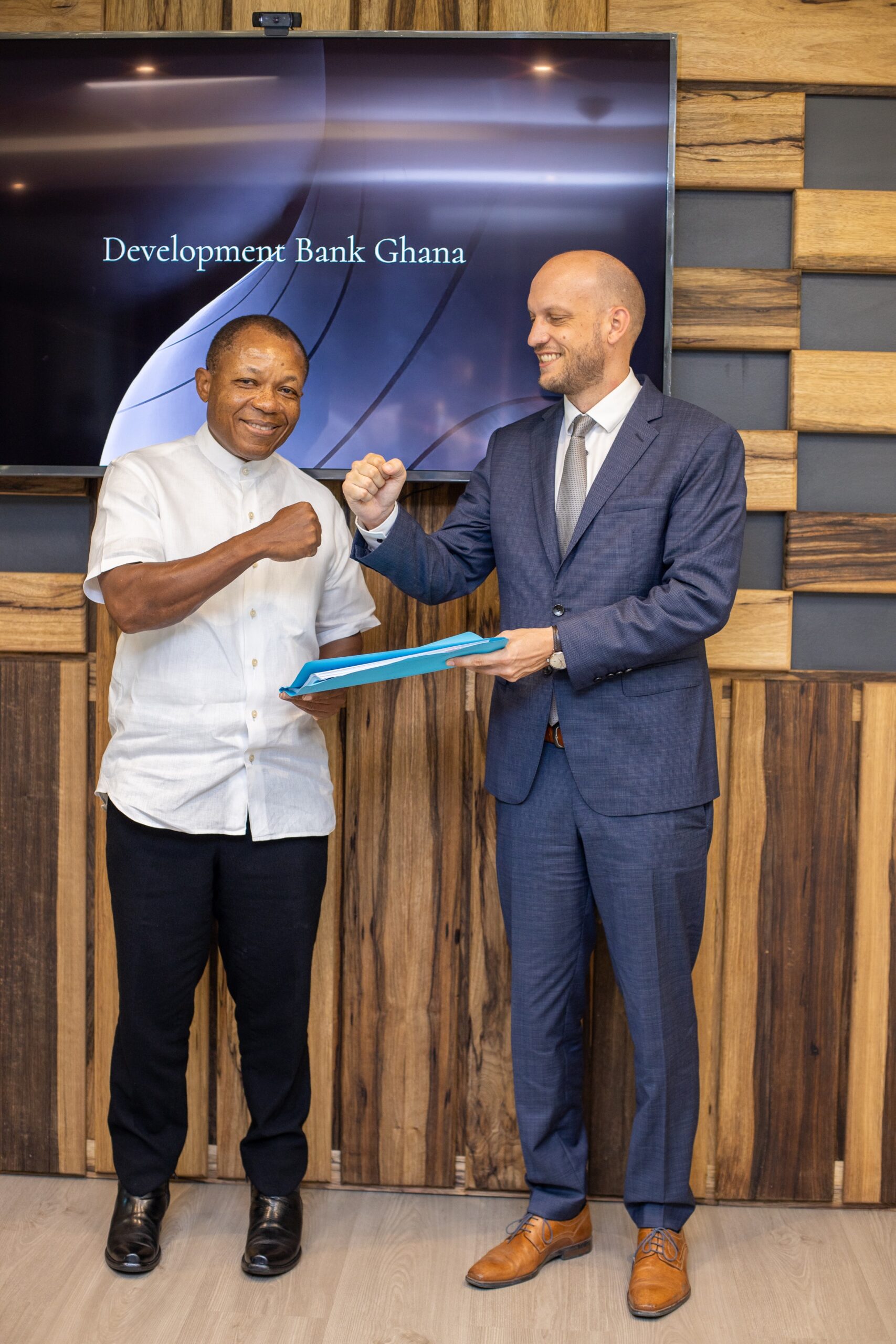A new engine for Ghana’s economic transformation – the Development Bank Ghana – another milestone in German Ghanaian Cooperation
Loan in the amount of 46.5 million euros by German Government via KfW for the Development Bank Ghana – contract signing event held in Accra on 2nd December, 2021
Ghana has great political weight due to its positive democratic and economic development and is considered an anchor of stability in the region. As the first country in sub-Saharan Africa, Ghana managed to halve poverty within its population compared to 1990. But challenges remain: especially in the wake of the covid pandemic; jobs must be created and secured particularly for the young generation. For this, the private sector must be better provided with long-term and adequate credit. Currently, less than 15% of the loans granted by banks have a maturity of five years or longer, which makes it difficult for the private sector to invest in projects with a long maturity.
The World Bank, the European Investment Bank and KfW Development Bank – among other international development institutions – have been supporting the Ghanaian government since 2018 in establishing a national development bank, the Development Bank Ghana (DBG).
Role model: the German promotional bank, KfW
The Ghanaian Minister of Finance, Ken Ofori-Atta, explains: “The model was the German promotional bank – the KfW Banking Group – which played a central role in the reconstruction and transformation of the German economy after the Second World War. Through DBG, the Ghanaian government will be able to further strengthen its support to the private sector to drive economic growth and transformation.” In June 2019, a Ghanaian delegation visited KfW Banking Group in Frankfurt to gain an in-depth insight into the bank’s history, strategy and current promotional activities.
“Like KfW, DBG will not provide retail or direct commercial loans, but will provide funding to existing commercial banks and other qualified financial institutions to offer long-term loans and other innovative products that are currently lacking in the market. Businesses in the agriculture, manufacturing, ICT, tourism, and home ownership promotion sectors will be particularly targeted. Project DBG is embedded in Ghana’s “build back better” efforts during and after the Covid-19 pandemic and in the country’s national long-term economic strategy.”, said Arndt Wierheim, Director of the KfW Office in Ghana.
On behalf of the German Federal Ministry for Economic Cooperation and Development (BMZ), KfW Development Bank will provide debt financing in the form of a subordinated loan totaling EUR 46.5 million directly to DBG. The contract signing event was held in Accra on 2nd December 2021. In addition, German Government funds were already provided through KfW to support the Ghanaian partners in the establishment process; for example, in developing selection criteria for the partner banks, drafting the budget of the new bank and providing legal advice.
According to Isaac Hagan, KfW Project Coordinator for the Financial Sector in Ghana, “to further support the set-up of the Bank, EUR 3 million for accompanying measures (technical assistance) have also been granted by the BMZ for implementation through KfW. The accompanying measure will, among others, support the set-up of a data analytics function, train DBG staff, assist in the implementation of the Bank’s Core Banking System, advise DBG’s Management and support the set-up of a state of the art environmental and social management system (ESMS).”
DBG will also receive financing through the Government of Ghana from the European Investment Bank (EIB), which provides a loan of EUR 170 million; the World Bank, which granted a loan of USD 225 million; and the African Development Bank, providing a grant of an amount of USD 40 million to further capitalize the DBG.“An efficient financial sector that facilitates access to medium and long-term capital at affordable interest rates is a prerequisite for sustainable growth. By providing longer-term financing through DBG, Ghanaian businesses – specifically small and medium-sized enterprises – will be able tomake productivity-enhancing investments allowing them to retain and create jobs also for young Ghanaians. In this way, DBG can contribute to the recovery from the Covid-19 crisis and to economic growth in Ghana,” sums up, Lisa Stahl, who is the responsible Senior Portfolio Manager for DBG at KfW Development Bank.





